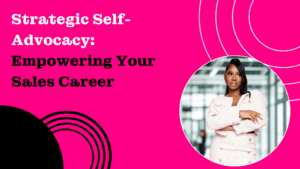Meet Ranjitha Raghunathan, Commercial Account Executive at Gong
Interviewed by Florence Madenga
“Find your own personal board of directors”
On The Pandemic
For many people, a global pandemic may look like the worst time to be starting a new job at a new company. For Ranjitha Raghunathan, her first two months at Gong have encompassed some of the best teamwork she’s experienced in a workspace, even without the “space.” At a time where professional relationships are being tested, Ranjitha is thriving. “Obviously we have all been remote and I haven’t met many of them personally,” she says of her team and colleagues. But “they’ve been super helpful. And I think Gong as a tool and a platform itself actually helps me become a better salesperson every day. I couldn’t be happier.”
As a commercial account executive, Ranjitha works with smaller companies — this means the size is anything from one employee to 250. The “small and mid-sized business” (SMB) space requires a lot of cold calling, identifying exciting business prospects, and building relationships. It means understanding priorities, fit, and roles — the ones people say they hold, as well as the unspoken concerns, values and responsibilities. While much of this comes naturally to Ranjitha, what made her career transition so painless is that within the first month in her role, she participated in Gong’s mentorship program, which encourages employees to “reach out to anyone to get some help.” She did just that. Ranjitha found herself “leaning a lot on teammates and colleagues” that have quickly turned into friends. She describes this culture as “feedback forward,” a part of the #NoSugar Operating Principle, which fosters an environment where everyone can improve daily and own their own way of selling. Employees are encouraged to be direct, speak their mind, and expect the same from their peers.
On Trying Again
Ranjitha’s journey to Gong has been two years coming. The first time she applied for a position there, she did not get the job. “I was not qualified by any means to get that job,” she says. But that didn’t mean she stopped. She honed her skills at Salesforce as a new business account executive, and then an SBE account executive, where she consistently outperformed expectations and was a peer-elected team lead. Meanwhile, before she applied a second time at Gong, she combed through much of the content the company was generating, from podcasts and YouTube Video content, to reading more about the industry. “So when they reached out to me, it was a fangirl moment, really,” she says. She breezed through the interview process and found herself at Gong, now as a commercial account executive.
Like her arrival to Gong, Rajintha’s arrival to sales has not been linear. It has culminated in journeys across the Atlantic, and interests that she’s gleaned at several other moments in her life. Seven years ago, she moved to the U.S. from India. Prior to that, she was a software engineer, and quickly realized engineering was not something she was passionate about. She then worked for a small wind energy startup where she got into sales, business development, and realized: “Well, it’s like I’ve been doing sales all my life and I just had no idea.” Additionally: “I firmly believe that you don’t technically need to have a title to be in sales,” she says. “I was always selling. You just don’t know what you’re selling, or you could be selling yourself every day.”
On Not Selling Out
But how do you “sell yourself” without…well, selling yourself? On applying to a sales job (which can be meta because the process itself is an exercise in sales), Ranjitha recommends sticking to who you are. “I think specifically for women of color, it’s important that you own it,” she says “If you’re going to be different, you’re going to sound different. You’re going to look different. And that’s what brings your unique perspective to your job. That’s what makes you stand out and really hone in on those skills.” Here, Ranjitha is speaking from experience.
As a brown woman in sales, she has been asked to “tone it down,” to “not be so direct,” so “soften the blow” and adhere to more stereotypical feminized and racialized modes of behavior in the workspace. “I was never a fan of that because that’s not who I am,” she says. “If I was going to take so long to write an email, she says, as has been recommended by some to “tone down” her approach, “the email I’m sending out is really not something I would even say.”
So instead of finding another voice, Ranjitha would rather spend time finding her own. “The minute you start imitating someone else, you are going to forget it, you’re going to hate it, and nobody wants that,” she says. “And just to think, you know, the challenges that come with being a woman in sales and in such a male dominated field is a job by itself.”
It is because of this reason, and the notion that sales as a career can be “super controlled,” that well-intentioned close friends and family, knowing her personality, warned her not to enter sales. She knew things like “having an accent” and coming from a different country would mean dealing with prejudice. Dealing with this has required having more open and honest conversations around diversity and inclusion. “People don’t realize that we’re not stupid,” Ranjitha says. “Someone says, ‘hey, don’t be in sales.’ Literally, the first question that comes to mind is ‘Why? Do you think I sound different?’ That’s my first question. It’s unfortunate that it’s common, but I think thankfully that times are changing.”
On Finding Your Own Personal Board of Directors
What has also helped that change is other women supporting each other. “I think people who I admire the most are people who care, like they really really care, and not just say they care,” she says. “There’s a big difference between the two, and people don’t really realize that.” For Ranjitha, one of those people was a previous manager at Salesforce, Lisa McClure. “She’s a woman and she was so passionate about women in sales, women of color in sales, and always made sure that there were diverse people on the team,” she says. Another woman of color who has been influential in helping Ranjitha navigate Gong and evade imposter syndrome Gabrielle Mazaltarim, a senior account executive. “I think it always comes down to the importance of having a peer mentor,” Ranjitha says. “Find these people, find your personal board of directors. There are so many people that I can rely on who actually care for me and are involved in my decision making. Those are the people I look up to.”
Like Lisa and Gabrielle, other mentors she has admired have led with empathy as well, and not just critique. “I never felt like I was being judged,” she says. That kind of confidence has also helped her leverage her voice to propel her career forward. “If you feel like you’re deserving of a promotion, ask for it,” she says. “You want a raise, if you don’t ask, there’s a 100 percent chance that you won’t get it. But if you do ask, there’s a 50 percent chance that you would get it.” Forging forward like this is not about ego, it’s about navigating obstacles that have already been set out for women of color. “Don’t disqualify yourself, there are recruiters for that,” Ranjitha says. “They are literally getting paid to do that. So apply for the job that you think you’re ‘not qualified for’ because you might be in someone else’s eyes.”
On Having No Regrets and Embracing Mistakes
Perhaps part of the hesitation in stepping out and applying, or asking for opportunities, or simply trying something new and pivoting careers altogether, comes from the fear of making mistakes. For all the pivoting she has done, Ranjitha states that she has no regrets. “I’m someone who takes all the shots,” she says. “My sister always jokes that I’m so impulsive,” she laughs. “It just comes down to that.”
But that does not mean there were no false starts along the way. “My dad always says your education gets you only a few things,” she says. “One, your first job. Two, maybe your first marriage,” she chuckles. “But I would say, if you’re not passionate about what you’re doing, find something that makes you happy, you’ll find the passion.” That could be something small. “It could be art. It could be just going out and for a long trip. It could literally be anything that you think you’re very passionate about. Then ask, why does it make you feel a certain way when you do these things?”
Ranjitha remembers that she’s always loved the concept of “convincing someone, telling someone ‘hey, let’s go somewhere else to eat. Let’s watch this movie.’” Integral skills in sales. Once she figured that out, she was well on her way. “So go out and put yourself out there,” she says. “It’s OK to fail. Two steps back and three steps forward is still one step forward. So go ahead and make those mistakes and try to learn from them.”
On Setting Boundaries
Going forward and working on your dreams, however, should not mean forgetting boundaries, having fun, and actually living. Working in this pandemic has offered an opportunity for Ranjitha to think about what those boundaries look like, especially at a time where work, play, and living have been meshed together in the most jarring way.
With her husband, an entrepreneur, also working from home and by her side every day, the beginning of the pandemic meant no line between personal and professional, with what felt like eating, sleeping, cooking, working out, work — everything in the same spot. “When the pandemic started, I was like, oh my God. I don’t want to sit at home because I’m such an extrovert,” she says. “Look, I get my energy from people. But now if someone asks me to go back to work [in an office], I’d probably think twice!” she chuckles.
Working from home has required drawing lines. This means saying “I’m done with work today and I’m actually done,” says Ranjitha. Also, “definitely dedicate a spot for your work where you can get up and go to another spot to do something more relaxing,” she advises. “Working from your couch, watching TV on your couch, and having your meals on the couch doesn’t really help.” She’s reshuffled her living space: “I had a desk and I put some plants and some lights, some pictures that I really like and it makes you want to sit there, but also kind of makes you want to be like, OK, I’m done with this particular spot.”
Other boundaries Ranjitha has drawn include uninstalling work email apps. “ I think it was July or August of last year where I was like, I’m just going to uninstall my work email from my phone because I’m not a doctor,” she jokes. “I’m not ‘saving lives.’ I had a life outside of this. So my phone just helps me draw together like a line in my brain and say, OK, we’re done with this.”
While boundaries might mean limiting some things, they can also mean opening up space and time for other things. Like getting a dog. “I was always so afraid of them,” Ranjitha says. “But the pandemic happened…We moved to a different apartment, which was dog friendly, and my husband was like, well, you want to think about it?” Adopting a jindo and dachshund mix, Dobby has added unexpected joy to working at home. “She only looks like a dog,” Ranjitha says of Dobby. “But she seems like a cat. She comes to me when she wants to play. And right now she’s just sitting there minding her business. Like she’s just chilling.”
Aside from getting a new pet and braving the pandemic together, Ranjitha has also gotten a chance to think about the entrepreneurship spirit she shares with her husband. “Running a business is a sales process,” she says. “Except you’ll be running it on a whole new level. My husband and I got married the same year that he started his company. So we met a few months before we got married, and I was asking him just the other day, ‘which person on the earth told you that it was a good idea to get married the same year you started that?” She chuckles. But it ended up being more than a good idea. “At the end of the day, your business and your marriage are kind of the same things,” she says. “You should try to make it work. You’ll fail like five times but you’ll still have to get up the sixth time. Try again. And the seventh time is when it actually works well.”
She is now thinking of what her future in sales, and in the company might hold. “I’ve always wanted to start my own company, always wanted to be a co-founder, like an early stage startup,” she says. Salesforce was a great place to start my career formally in Sales but Gong came in my life to accelerate my growth – being a sales tool and a hyper growth startup,” she says. When her manager asked what she thinks her trajectory looks like, she responded, “I told him that in four years I want to be a VP. It’s a very aggressive goal. But what’s a goal if it’s not aggressive?”

Sistas in Sales, LLC (SIS) is a community for women of color sales professionals to network, advance their careers and most importantly, find sisterhood – offering events, thriving Slack community with companies hiring now, and career coaching services. Learn more about Sistas In Sales membership here, connect with us on LinkedIn, Instagram, Facebook, and Twitter.

Sponsored by Gong.
Learn more about joining Gong.




